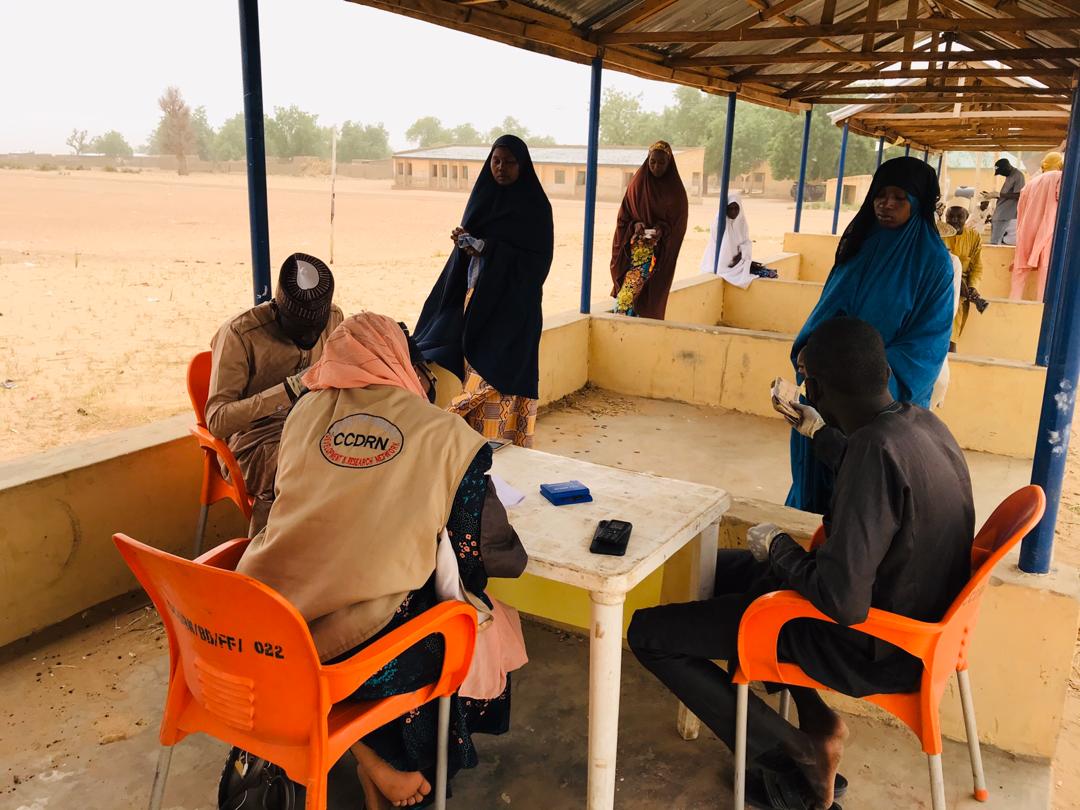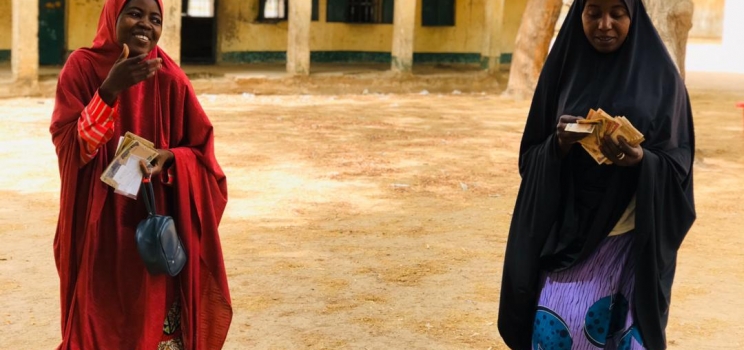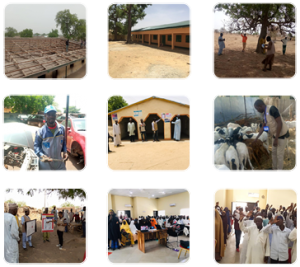Bade Local Government Area of Yobe state is housing many conflict-affected families from Borno state and other neighboring towns. More than half of the host community members are vulnerable and live below the poverty line. Consequently, many exposed families still find it difficult to meet their daily food needs.
This has been further compounded with the outbreak of the COVID 19 pandemic which is changing life’s course with an attendant threat to vulnerable families whose livelihood has been further disrupted following restrictions and other preventive measures put in place by authorities to check the spread of the virus. Major markets and other non-essential activities including interstate movements are still restricted. This has spiked the price of food and other needed commodities.
In May 2020, WFP reached out to 2500 targeted vulnerable families across sixteen communities in Bade Local Government Area of Yobe state with unconditional cash assistance under its Food For Assets-livelihood project being implemented by Centre for Community Development and Research Network (CCDRN). Each targeted family received N44, 000, an estimated $113, to help vulnerable families cope with the burden mounted by COVID 19. Beneficiaries received two months allocation to cover for April and May without any strings attached. This has been providing the much-needed relief in the COVID context, helping beneficiaries to support their families with food, soap, sanitizers, and other essentials.

Beneficiaries queue to receive cash during cash out activity in Bade
Since January 2020, CCDRN has been implementing the 2nd phase of the WFP’s livelihood project, aimed at addressing the most vulnerable people’s immediate needs with conditional cash transfers component where beneficiaries receive N22, 000 on a monthly basis after satisfying some cash for work conditions. Under this arrangement, targeted beneficiaries who are physically able to work but food insecure, are provided with cash assistance by WFP to help build or rehabilitate infrastructure to increase their families’ food security.
Community members select the assets through a Community Based Participatory planning process in which priorities are identified and action plans are developed. With support from WFP, CCDRN provides tools and other items as required and training wherever necessary.
30-year old Fatima Abubakar, a mother of five, displaced from Abadam along with her family in 2018, and has been living in Azbak community in Bade LGA since she fled with her family due to attacks by armed opposition group is a beneficiary of WFP cash assistance. The cash she receives every month under the WFP livelihood project in Bade has been coming in handy. The happiness and joy she exudes explains the magnitude of relief it has been providing for her and her family.
“The two months cash I received from WFP came at a great time of need especially now that this disease has led to an increase in prices of food. I have been using it to buy and stock up food and other necessary family needs like washing soap and detergent. I also invested a part of the money in buying livestock I bought a male and a female turkey and a pair of guinea fowl too. I intend to use this and make additional income to keep supporting my family. “Says Fatima, adding that “I am indeed grateful to WFP for all the support I have been receiving and this double cash assistance is just like a miracle to me”
Isiaku Abubakar, who also lives in Bade as an Internally Displaced Person, with his wife and five children received the double cash transfer from WFP to cushion the effects of the COVID 19. He shares his story of how the cash he received is helping to meet his families immediate food needs
“It is a wonderful thing. I can say categorically that without this money most of us could die of hunger and starvation during this COVID 19 lockdown. Personally I use this money to feed my family so it has been a blessing to me. Before we started getting these cash transfers I do manual labor daily to feed my household. Even this labor is not easy to get, sometimes we will go in search of work and return without any money. But now I can fend for myself, this WFP project is a blessing to me. Once I got the money I bought all my necessities, this includes; Fertilizer, Food Stuff, and seeds for my farming. This is how I manage my life and am grateful to those sending us this cash transfer”. He said.

beneficiaries happily counting money they received from CCDRN thanks to generous support from WFP
WFP and CCDRN have been working with conflict-affected individuals and vulnerable host communities in Bade Local government area to rebuild their livelihoods through a more sustainable approach. The combination of conditional cash assistance and asset creation helps food insecure communities to shift away from continuous reliance on humanitarian assistance to achieve more sustainable food security.
The unconditional ‘Cash Based Transfer’ (CBT) took place across the seven wards of Usur Dawayo, Lawan Fannami, Lawan Musa, Zango, Sarkin Hausawa, Dagona, and Sabon Gari, in Bade LGA, targeting 2500 vulnerable households from 22nd to 28 May 2020. The Cash-Based Transfer is aimed at providing food to beneficiaries and to rejuvenate the local market which in turn helps to revive the local economy.
Originally, Beneficiaries receive WFP assistance for 15 days of work per month on asset creation projects being managed by CCDRN. In exchange, WFP provides a monthly cash stipend. Often, this assistance is complemented by other activities which include the provision of seeds, tools, and training on agricultural production and other profitable income-generating activities to help beneficiaries reestablish their lost livelihoods as part of WFP’s resilience initiative.
This broad range of support, being implemented by CCDRN includes asset creation and sustainable livelihoods programs, to assist communities to recover and increase their resilience to future shocks.
CCDRN is implementing robust livelihood activities across 16 communities in Bade LGA, focused on the restoration of the productive capacity of arable land; the construction of community infrastructure; environment, natural resource management and climate adaptation; skill development, and income generation.

